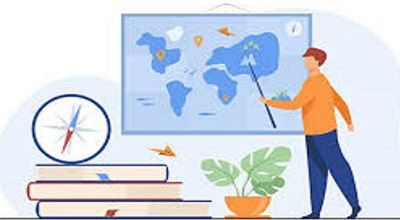Education is Needed to Become a Teacher
How Education is Needed to Become a Teacher. The education required to become a teacher varies depending on the level and subject you want to teach. As well as the country or state in which you plan to work. However, here are some general guidelines for the educational requirements to become a teacher:
Bachelor’s Degree
- In most cases, you will need at least a bachelor’s degree to become a teacher. Your major should typically align with the subject or grade level you want to teach. For example, if you want to become an elementary school teacher. You might major in elementary education or a related field. If you want to teach high school math, you might major in mathematics or math education.
Teacher Preparation Program
- In addition to a bachelor’s degree, many teaching positions require completion of a teacher preparation program. These programs are designed to provide aspiring teachers with the knowledge and skills needed to be effective educators. Teacher preparation programs often include classroom observations, student teaching experiences, and coursework in pedagogy (the art and science of teaching).
Teaching Certification
- To become a licensed teacher, you will typically need to obtain a teaching certification. Or license from the relevant state or country’s education department. Certification requirements vary widely, but they often include passing exams, completing a background check, and meeting specific coursework and experience requirements. Some states also require teachers to continue their education through professional development courses to maintain their certification.
Master’s Degree (Optional)
- A bachelor’s degree and teaching certification are the minimum requirements for most teaching positions. some teachers choose to pursue a master’s degree in education or a related field to advance their careers or specialize in a particular area of education. Having a master’s degree can also lead to higher salaries in some cases.
Continuing Education
- Even after becoming a certified teacher, it’s essential to engage in continuing education and professional development to stay current with educational trends and best practices. Many school districts and states require teachers to complete ongoing professional development hours to maintain their teaching credentials.
Special Requirements
- Some teaching positions may have additional requirements. For example, special education teachers often need specialized training and certification to work with students with disabilities. ESL (English as a Second Language) teachers may need specific language proficiency or ESL certification.
Final Words
It’s important to research the specific requirements for the grade level. And the subject you want to teach in your region, as these requirements can vary significantly. Additionally, the field of education is constantly evolving. So staying informed about changes in certification requirements and educational practices is crucial for aspiring and practicing teachers.
